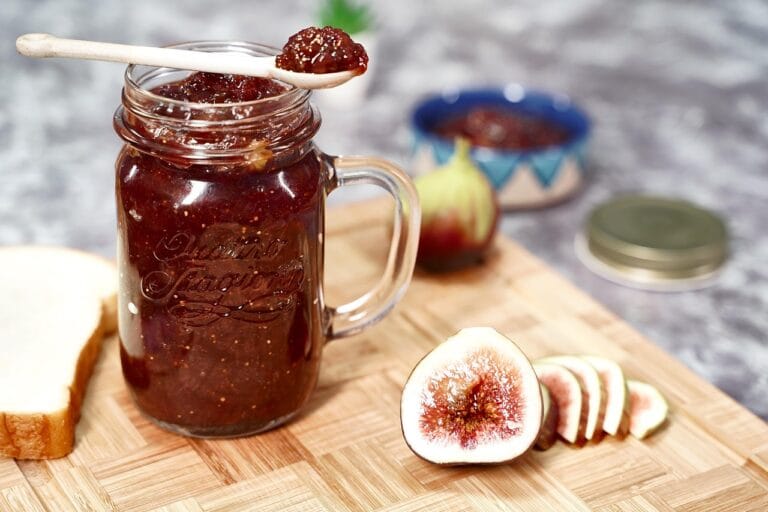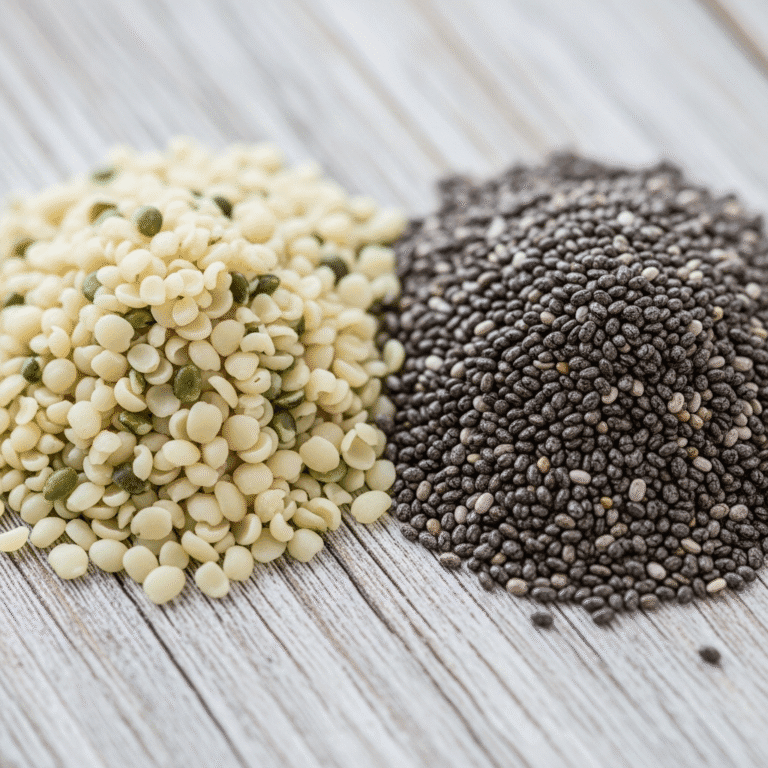FREE SHIPPING OVER $50
Ulcerative Colitis Diet: Meal Plan for Symptoms
Living with ulcerative colitis (UC) can be challenging, but you don’t have to let it control your life. One of the most important aspects of managing your condition is following a healthy ulcerative colitis diet plan that suits your needs and preferences. In this blog post, we will show you how to craft a comprehensive ulcerative colitis diet plan that can help you reduce your symptoms, improve your gut health, and enjoy your food without fear or guilt. Read on to discover the best foods for ulcerative colitis, the foods to avoid, and some tips and tricks to make your diet more enjoyable and effective.
Building Your Ulcerative Colitis Food List
Certain foods can trigger or worsen your ulcerative colitis symptoms, while others can help you feel better and nourish your body. That’s why having a personalized ulcerative colitis food list is essential for managing your UC. Below are several kinds of foods you can include in your ulcerative colitis diet plan.
Low-fiber fruits
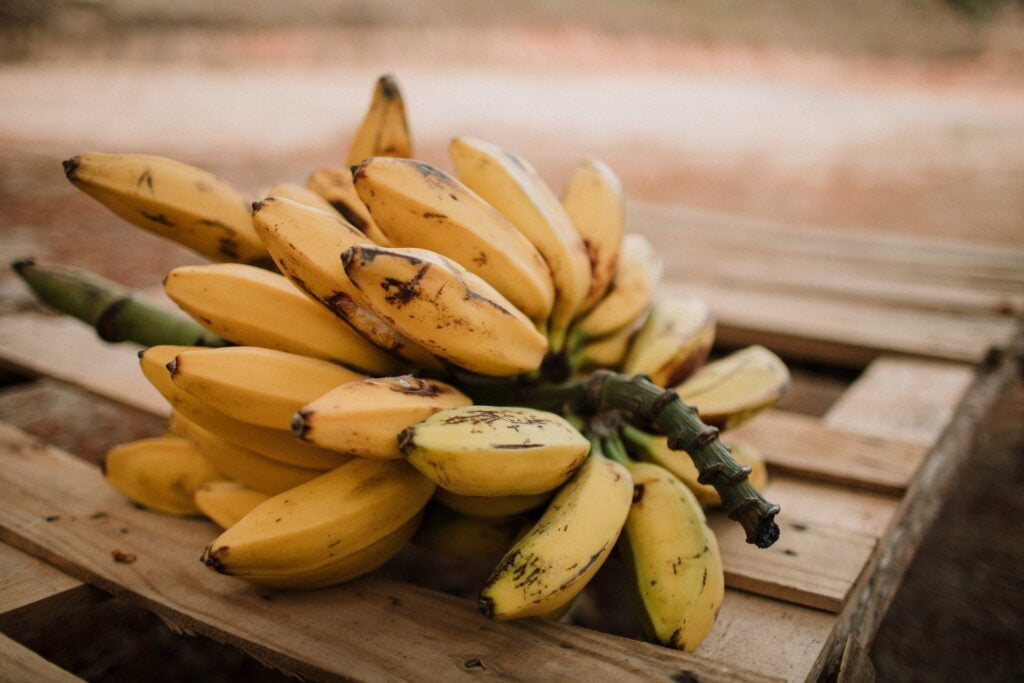
Fruits are a great source of vitamins, antioxidants, and natural sugars that can boost your energy and immune system. However, not all fruits are suitable for people with UC. Some fruits, especially those with seeds and skins, can be hard to digest and may irritate your intestines.
That’s why low-fiber fruits are a better choice for your ulcerative colitis food list. Low-fiber fruits are easier to digest and less likely to cause gas, bloating, or diarrhea. Some examples of low-fiber fruits are:
- Bananas
- Melons
- Applesauce
- Cooked or canned fruits (without added sugar)
- Cantalopues
- Plums
- Papayas
- Peaches
You can enjoy these fruits as a snack, add them to your oatmeal or yogurt, or blend them into a smoothie. Just make sure to peel the skin and remove any seeds before eating them.
Lean proteins
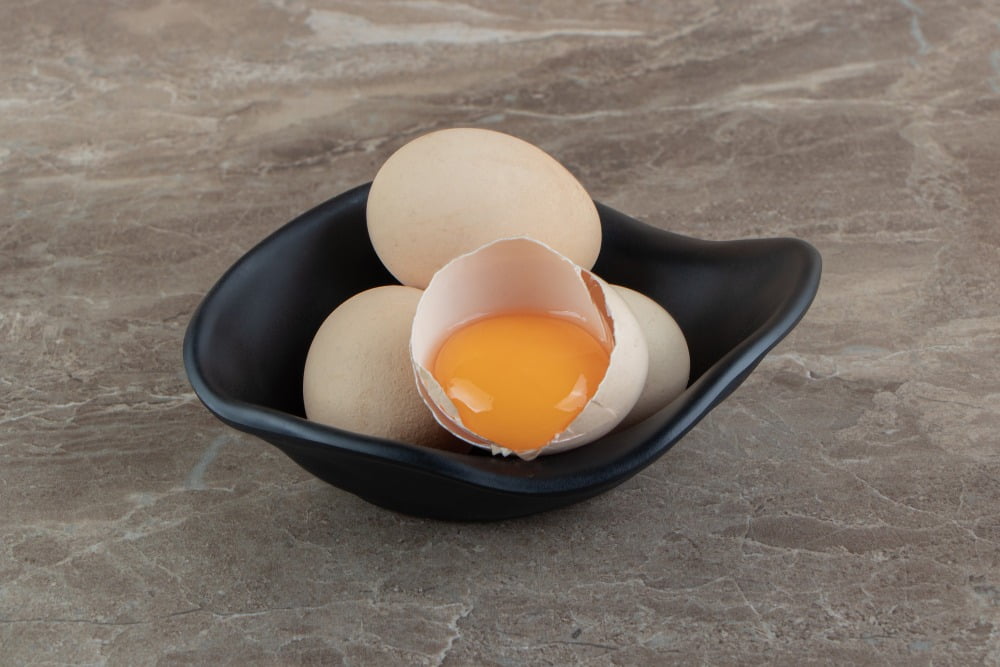
Protein is an essential nutrient for building and repairing your muscles, organs, and tissues. It also helps you feel full and satisfied after a meal. However, some sources of protein can be high in fat, which can worsen your UC symptoms.
Lean proteins are low in fat and high in quality protein that can support your health and recovery. Some examples of lean proteins are:
- Chicken (skinned)
- Turkey (skinned)
- Fish
- Eggs
- Tofu
- Tuna
- Hummus
- Plain Yogurt
You can cook these proteins in various ways, such as baking, grilling, or poaching. You can also season them with herbs and spices that are not too spicy or acidic. Avoid frying, breading, or adding too much oil or butter to your proteins.
Vegetables
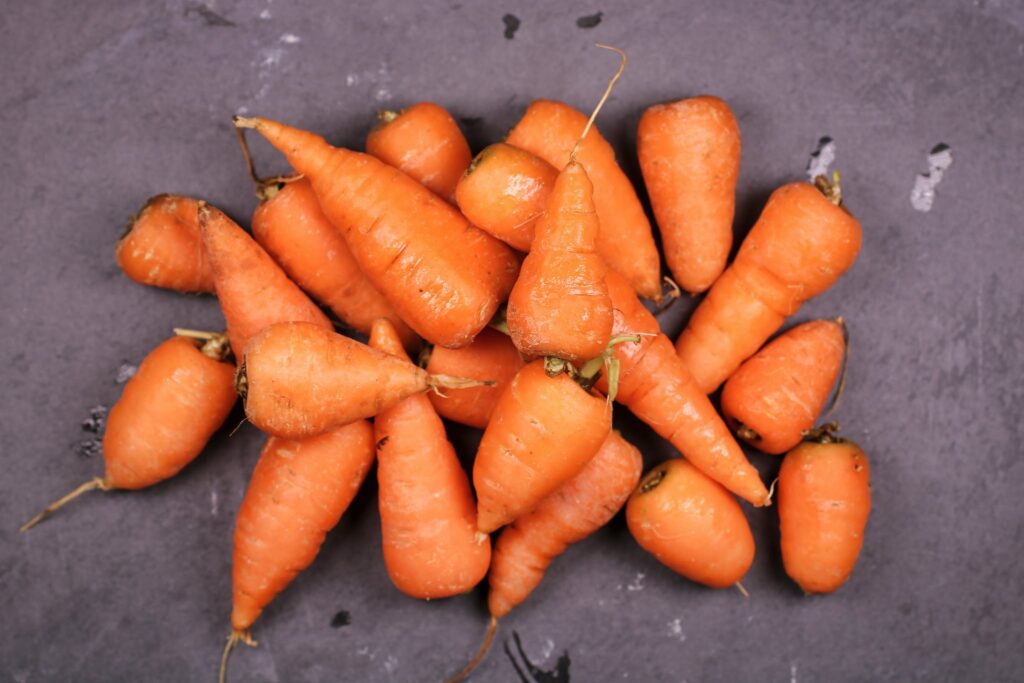
Vegetables are another excellent source of vitamins, minerals, and antioxidants that can benefit your overall health and well-being. However, some vegetables can be high in fiber, which can be hard to digest and may trigger your ulcerative colitis symptoms.
Cooking vegetables makes them softer and easier to digest, reducing the risk of intestinal irritation. Some examples of cooked vegetables are:
- Carrots
- Zucchini
- Squash
- Spinach
- Asparagus
- Tomato Sauce
You can steam, roast, or boil these vegetables until they are tender. You can also puree them into soups or sauces for extra flavor and texture. Avoid raw vegetables, especially those with stems, seeds, or skins.
Refined grains
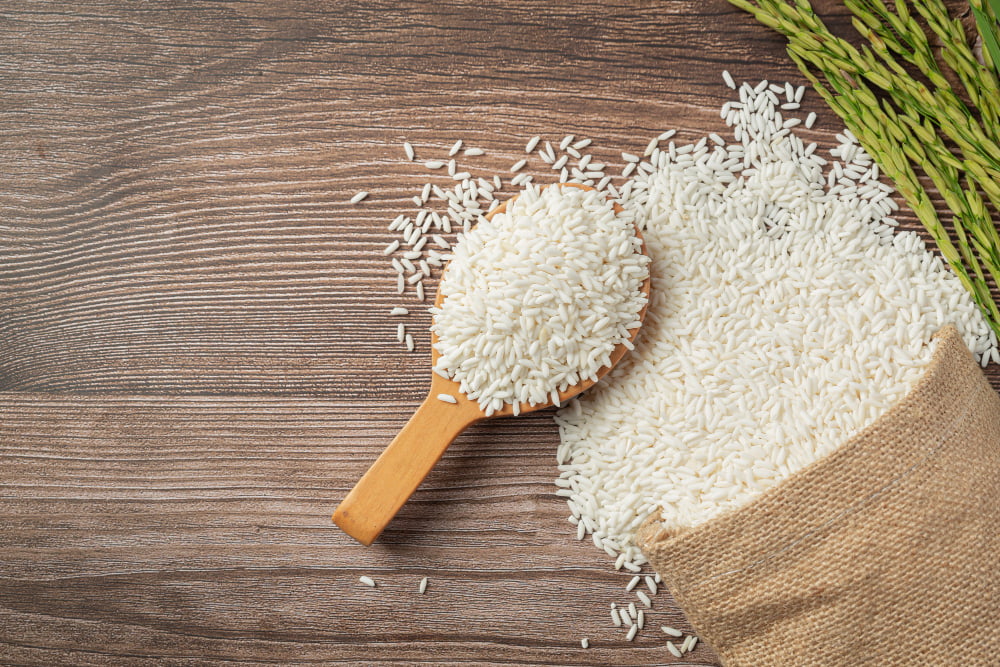
Grains are a good source of carbohydrates, which provide energy for your body and brain. However, some grains can be high in fiber, which can be difficult to digest and may aggravate your ulcerative colitis symptoms.
That’s why refined grains are a better option for your ulcerative colitis food list. Refined grains are processed to remove the bran and germ, which contain most of the fiber. This makes them easier to digest and less likely to cause gas, bloating, or diarrhea. Some examples of refined grains are:
- White rice
- White bread
- White pasta
- Oatmeal
- Potatoes
- Farina
- Corn Flakes
You can enjoy these grains as a side dish, add them to soups or casseroles, or make them into desserts. Just make sure to avoid whole grains, such as brown rice, whole wheat bread, or quinoa.
Designing Your Ulcerative Colitis Diet Plan
You know that eating the right foods can make a big difference in your ulcerative colitis symptoms. But how do you design a ulcerative colitis diet plan that works for you? Here are some tips to help you create a balanced and harmonious meal plan that suits your needs and preferences.
- Start with the basics: A ulcerative colitis diet plan should include foods from all the major food groups: fruits, vegetables, grains, protein, and dairy. These foods provide essential nutrients that support your health and well-being. However, not all foods within each group are equally beneficial for colitis. You need to choose foods that are easy to digest, low in fiber, and non-irritating to your colon.
- Avoid trigger foods: Some foods can worsen your colitis symptoms or cause colitis flare-ups. These include spicy, greasy, or fried foods, alcohol, caffeine, carbonated drinks, nuts, seeds, popcorn, corn, raw fruits and vegetables, dairy products (if you are lactose intolerant), and gluten (if you have celiac disease).
- Experiment with different foods: Everyone’s colitis is different, so there is no one-size-fits-all diet plan. You may find that some foods that are generally recommended for colitis are not suitable for you, or vice versa. The best way to find out what works for you is to try different foods and see how they affect your symptoms. Start with small portions and introduce new foods gradually. If a food causes problems, eliminate it from your diet and try something else.
- Plan ahead: Having a ulcerative colitis diet plan can help you avoid situations where you have to eat something that may trigger your symptoms. Prepare your meals in advance and pack snacks when you go out. Choose restaurants that offer options that fit your diet plan and avoid buffets or fast food places.
- Enjoy your food: Eating with colitis can be challenging, but it doesn’t have to be boring or bland. You can still enjoy a variety of tasty and nutritious foods that are good for your colon and your overall health. Try different flavors, herbs, spices, and cooking methods to make your meals more appealing.
Meal Plan For Ulcerative Colitis
| Meal | Day 1 | Day 2 | Day 3 | Day 4 | Day 5 |
| Breakfast | Scrambled eggs with cheese and toast, orange juice | Oatmeal with banana and milk, herbal tea | Yogurt with granola and berries, apple juice | Pancakes with maple syrup and butter, milk | French toast with jam and whipped cream, orange juice |
| Snack | Crackers with peanut butter | Smoothie with yogurt, banana, and honey | Rice cake with cream cheese | Muffin and milk | Trail mix with nuts, dried fruits, and chocolate |
| Lunch | Chicken noodle soup | Turkey sandwich with lettuce and mayonnaise | Pasta with tomato sauce and cheese | Vegetable lasagna with salad | Ham and cheese wrap with coleslaw |
| Dinner | Salmon with rice and broccoli | Beef stew with potatoes and peas | Chicken breast with mashed potatoes and corn | Pork chop with baked potato and sour cream | Stir-fried shrimp with noodles and vegetables |
Foods to Avoid with Colitis
You may have heard that some foods can trigger or worsen the symptoms of ulcerative colitis but what are these foods and how can you avoid them?
The truth is, there is no one-size-fits-all diet for people with ulcerative colitis. Everyone’s body reacts differently to different foods, and your tolerance may vary depending on the severity and location of your inflammation, your medication, and other factors. However, some common foods that may cause problems for people with ulcerative colitis include:
Dairy products
Some people with ulcerative colitis are lactose intolerant, meaning they have trouble digesting the sugar in milk and other dairy products. This can cause gas, bloating, cramps, and diarrhea. If you suspect you are lactose intolerant, you may want to limit or avoid dairy products, or try lactose-free or low-lactose alternatives.
Gluten
Gluten is a protein found in wheat, barley, rye, and some oats. Some people with ulcerative colitis are sensitive to gluten, which can trigger inflammation and damage the intestinal lining. If you have celiac disease, an autoimmune disorder that causes severe gluten intolerance, you must avoid gluten completely. Otherwise, you may want to experiment with reducing or eliminating gluten from your diet and see if it makes a difference in your symptoms.
Fiber
Fiber is the indigestible part of plant foods that helps with digestion and bowel movements. However, for some people with ulcerative colitis, especially during a flare-up, fiber can be hard to digest and may irritate the inflamed colon. This can cause gas, bloating, cramps, and diarrhea. You may want to avoid high-fiber foods such as whole grains, nuts, seeds, beans, lentils, fruits, and vegetables with skins and seeds. You may also want to peel, cook, or puree your fruits and vegetables to make them easier to digest.
Spicy foods
Spicy foods can stimulate the digestive tract and increase bowel movements. For some people with ulcerative colitis, this can worsen their symptoms and cause pain, bleeding, and urgency. You may want to avoid foods that contain hot peppers, chili powder, curry, garlic, onion, vinegar, mustard, horseradish, and other spices that may irritate your colon.
Fatty foods
Fatty foods can slow down digestion and increase inflammation in the colon. This can cause gas, bloating, cramps, and diarrhea. You may want to avoid foods that are high in fat such as fried foods, greasy foods, butter, margarine, cream, cheese, ice cream, chocolate, cakes, pastries, cookies, chips, and nuts.
Alcohol
Alcohol can dehydrate you and interfere with your medication. It can also irritate the lining of your colon and trigger inflammation and bleeding. You may want to limit or avoid alcohol if you have ulcerative colitis.
Caffeine
Caffeine can stimulate the digestive tract and increase bowel movements. It can also dehydrate you and worsen your symptoms. You may want to limit or avoid caffeine-containing drinks such as coffee, tea, energy drinks.
FAQs
On an ulcerative colitis diet, focus on low-residue foods like lean proteins, refined grains, and cooked fruits and vegetables. These choices help manage symptoms and reduce irritation.
While a gluten-free diet is not a cure for ulcerative colitis, it may alleviate symptoms for some individuals. It’s crucial to consult with a healthcare professional to determine the most effective management plan.
Ulcerative colitis can lead to weight loss due to reduced nutrient absorption, increased calorie expenditure during flare-ups, and loss of appetite. Proper dietary management is essential to address these challenges.
In some cases, beans can exacerbate symptoms of ulcerative colitis due to their fiber content. During flare-ups, opt for easily digestible protein sources like lean meats and tofu.
The duration of a colitis flare-up varies, ranging from a few days to several weeks. Prompt medical attention and adherence to a tailored management plan are crucial for minimizing the impact and duration of flare-ups.
Conclusion
With a proper ulcerative colitis diet, you can manage your condition and enjoy your life. A balanced diet that includes foods lean proteins, refined grains and are low in fiber. Avoid foods that trigger your symptoms, such as spicy, fatty, or processed foods, alcohol, caffeine, and dairy products. Consult your doctor or a nutritionist before making any changes to your diet. Remember, you are not alone in this journey. There are many resources and support groups available to help you cope with ulcerative colitis.
If you found this blog post insightful, explore more by delving into our related articles:
- Free 7 Day Meal Plan for Ulcers
- Free 7-Day Meal Plan for Gestational Diabetes
- Free 7-Day Meal Plan for Kidney Disease: Renal Diet
- 7-Day Meal Plan for Pancreatitis: Breakfast, Lunch & Dinner
- How Can a Prediabetes Diet Influence Your Health and Well-being?
- Low FODMAP Diet Essentials: A Beginner’s Guide + Diet Plan
- 10 Foods that Lower Testosterone
- How Gut Health and Probiotics Affect Your Overall Well-being


